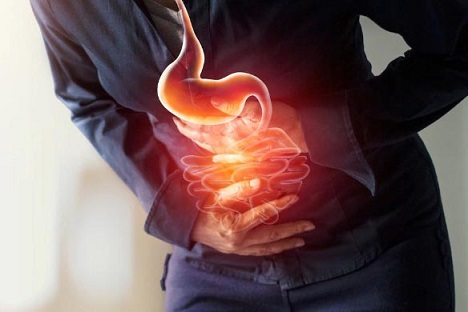Nikhil Prasad Fact checked by:Thailand Medical News Team Jul 17, 2024 9 months, 1 week, 1 day, 1 hour, 51 minutes ago
COVID-19 News: Scientists from the Fifth Affiliated Hospital of Sun Yat-sen University in Zhuhai, China, have discovered a significant link between COVID-19 and gut inflammation, particularly in the duodenum. This
COVID-19 News report explores their groundbreaking findings, which could pave the way for new treatments for those suffering from gastrointestinal (GI) symptoms associated with COVID-19. Persistent GI issues like abdominal pain, nausea, and diarrhea have plagued many COVID-19 patients, even after recovering from the initial infection.
 COVID-19 causes gut inflammation, especially in the duodenum
The Study and Its Methodology
COVID-19 causes gut inflammation, especially in the duodenum
The Study and Its Methodology
They study team meticulously analyzed gastrointestinal tissues using advanced imaging techniques to identify specific immune cell subgroups and their spatial distribution.
The research team collected data from 95 COVID-19 patients, selecting 11 individuals with prominent GI symptoms who had undergone gastroscopy. Using imaging mass cytometry, they examined the GI tissues to uncover detailed information about immune cell subgroups and their distribution patterns. This approach allowed them to visualize the complex interactions between various immune cells within the GI tract.
Key Findings: Immune Responses in the GI Tract
The study revealed acute inflammatory responses in the GI tissues, with a particular focus on the duodenum. Here are the key findings:
-Increased CD68+ Macrophages and CD4+ T-Cells: The tissues showed heightened levels of CD68+ macrophages and CD3+CD4+ T-cells, particularly in areas positive for the viral nucleocapsid protein (NP). This suggests a strong local immune response to the virus.
-Correlation Between Immune Cells: The presence of CD68+ macrophages was positively correlated with the number of CD3+CD4+ T-cells, indicating a coordinated immune response in the infected tissues.
-Gene Expression and Clinical Features: Using weighted gene coexpression network analysis, the researchers identified gene modules associated with clinical features and immune responses. The MEgreen module, in particular, showed a positive correlation with markers of liver function (total bilirubin, ALT, AST) and macrophages, while negatively correlating with CD4+ T-cells.
Detailed Analysis: The Immune Landscape
To gain deeper insights, the researchers conducted spatial neighborhood analysis. They found that in NP-positive tissues, interactions between CD68+ macrophages and other immune cells were significantly reduced. This reduction in cell-cell interactions could impair the body's ability to mount an effective immune response in the GI tract.
Potential Therapeutic Targets
The study's findings suggest that targeting specific immune cells and pathways could help alleviate GI symptoms in COVID-19 patients. For instance, the M
Egreen module, which was closely linked to immune response activation and chemotaxis regulation, could be a potential target for therapeutic interventions. Gene function enrichment analyses indicated that this module is involved in processes like immune response activation, signal transduction, and chemotaxis regulation.
Conclusion: Towards Better Treatments
The research highlights the critical role of specific immune cell groups, such as CD68+ macrophages and CD3+CD4+ T-cells, in the GI inflammatory response in COVID-19 patients. By identifying key gene modules and their associations with clinical features, the study provides valuable insights for developing targeted treatments for COVID-19-related GI symptoms.
The study findings were published in the peer-reviewed journal: Frontiers in Cell and Developmental Biology.
https://www.frontiersin.org/journals/cell-and-developmental-biology/articles/10.3389/fcell.2024.1375354/full
For the latest
COVID-19 News, keep on logging to Thailand Medical News.
Read Also:
https://www.thailandmedical.news/news/breaking-news-florida-study-shows-that-sars-cov-2-causes-histological-changes-to-the-gastrointestinal-tract
https://www.thailandmedical.news/news/breaking-covid-19-news-cleveland-clinic-study-finds-that-sars-cov-2-infections-can-lead-to-new-onset-gastroparesis-in-many
